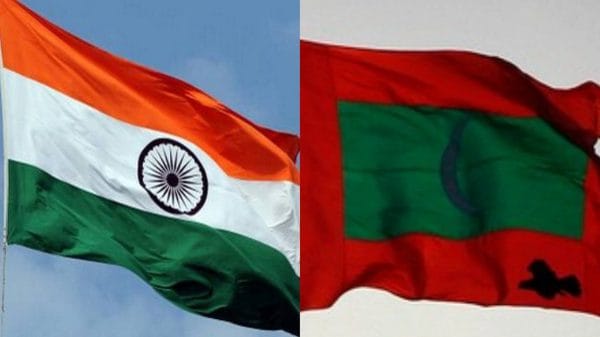Thank you dear subscribers, we are overwhelmed with your response.
Your Turn is a unique section from ThePrint featuring points of view from its subscribers. If you are a subscriber, have a point of view, please send it to us. If not, do subscribe here: https://theprint.in/subscribe/
India’s approach to its strategic partnerships in the Indian Ocean Region (IOR) reveals a significant evolution in its geopolitical strategy. This evolution can be sharply contrasted by comparing the proposed desalination partnership with the Maldives to the historical cession of Katchatheevu to Sri Lanka in 1974. While the Maldives partnership reflects a proactive effort to secure India’s regional interests and counter external threats, the Katchatheevu deal has been criticized for its adverse military and strategic implications. By examining these two scenarios, we can better understand the shifts in India’s strategic thinking and their broader consequences.
Military and Strategic Context
India’s partnership with the Maldives is a strategic move to strengthen its influence in the Indian Ocean Region (IOR), particularly in response to China’s growing presence. The Maldives, located near critical maritime routes, holds significant strategic value for India. China’s involvement in the Maldives, especially through its Belt and Road Initiative (BRI), has raised concerns in New Delhi about the potential for Chinese military bases in the region.
India’s offer to provide desalination technology to the Maldives goes beyond developmental aid; it is a calculated effort to ensure the Maldives remains within India’s sphere of influence. By focusing on a partnership that directly benefits the Maldivian people, India reinforces its role as a key ally, thereby reducing the risk of Chinese military encroachment. This approach demonstrates a sophisticated understanding of geopolitics, where development and strategic objectives are closely linked to maintain regional stability.
In contrast, the cession of Katchatheevu to Sri Lanka reflects a different era of Indian diplomacy, where the long-term strategic implications were perhaps underestimated.
The military implications of the Katchatheevu cession were further compounded by the involvement of British Major General Richard Clutterbuck, a prominent figure known for his expertise in counter-insurgency and urban warfare. His advice to the Sri Lankan government during the 1970s, along with the training of Sri Lankan commandos by British forces, contributed to the militarization of the region. This development posed a direct challenge to India’s security, particularly as it allowed Sri Lanka to bolster its military capabilities with external assistance. The decision to cede Katchatheevu is now seen not just as a diplomatic error but as a strategic miscalculation with long-lasting implications for India’s southern maritime boundaries.
Economic and Developmental Outcomes
The desalination partnership with the Maldives offers significant economic and developmental benefits. Water security is crucial for the Maldives, an island nation vulnerable to climate change. India’s provision of desalination technology addresses this need, strengthening bilateral ties and opening opportunities for Indian businesses, aligning with India’s strategic objectives in the region.
In contrast, the Katchatheevu cession negatively impacted Indian fishermen by disrupting traditional fishing grounds, causing economic hardship in Tamil Nadu. The subsequent militarization of the region, including Sri Lankan commandos with external support, led to clashes between Indian fishermen and the Sri Lankan Navy, straining India-Sri Lanka relations. This highlights the long-term economic and military consequences of the Katchatheevu deal.
Diplomatic and Environmental Considerations
India’s partnership with the Maldives must be managed to ensure it is seen as a collaborative effort, reflecting India’s role as a supportive regional power. Maldivian President Muizzu’s commitment to strengthening ties with India provides a favorable backdrop for this initiative. By positioning the desalination project as a response to the Maldives’ specific needs, India can counter Chinese influence in the region while enhancing its diplomatic image.
In contrast, the cession of Katchatheevu to Sri Lanka remains a diplomatic flashpoint, especially in Tamil Nadu, where it is viewed as a betrayal. The military consequences, including Sri Lanka’s collaboration with external powers, further complicate the situation. This highlights the importance of considering long-term strategic implications in diplomatic decisions.
Environmental sustainability is crucial, as the Maldives is highly vulnerable to climate change. India must ensure that its desalination technology minimizes ecological impact, reinforcing its commitment to global sustainability goals.
Conclusion
India’s strategic partnership with the Maldives, focused on providing desalination technology, represents a forward-looking approach to securing its interests in the Indian Ocean Region. This initiative, in contrast to the criticized cession of Katchatheevu to Sri Lanka, underscores the importance of proactive and strategic decision-making in international relations. While the Katchatheevu deal serves as a cautionary tale of the consequences of underestimating the military and strategic implications of territorial concessions, the partnership with the Maldives highlights the potential of collaborative development projects to enhance regional stability and security. As India continues to navigate the complexities of the IOR, it must draw lessons from past experiences to build partnerships that not only advance its strategic interests but also promote regional peace and prosperity.
These pieces are being published as they have been received – they have not been edited/fact-checked by ThePrint


